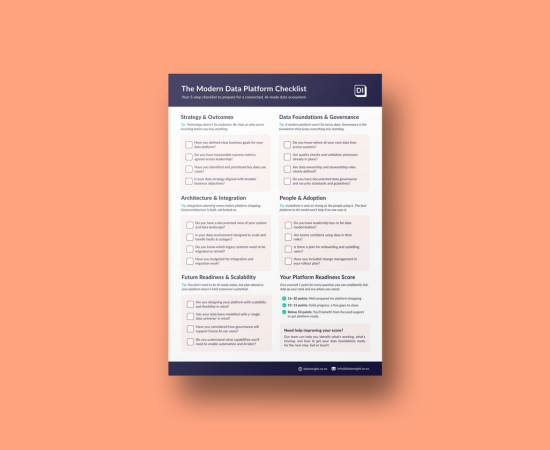You’ve probably heard of the Credit Contracts and Consumer Finance Act (CCCFA), but are you fully aware of how its recent changes could impact your financial institution?

As New Zealand's financial landscape continues to evolve, so do the responsibilities and challenges that come with compliance. Since its introduction in 2005, the CCCFA has played a critical role in safeguarding consumers. However, recent updates mean that now, more than ever, staying informed is crucial to ensuring your organisation is prepared.
At its core, the CCCFA aims to:
- Promote responsible lending practices.
- Ensure transparency in credit contracts.
- Protect consumers from unfair lending and excessive interest rates.
- Empower borrowers with better access to information, enabling informed decisions.
What’s Changed Since 2005?
While the CCCFA has always focused on protecting consumers, recent updates have addressed the unintended consequences of earlier amendments and adapted to the evolving financial environment. The latest changes, which took effect on 4 May 2023, are designed to balance consumer protection with greater access to credit for New Zealanders.
The key updates include:
- Clarity in Expense Assessment: Lenders now have clearer guidance on which expenses to consider when assessing affordability. Discretionary spending is excluded, providing more precise guidelines for both lenders and borrowers.
- Greater Flexibility in Repayment Calculations: The updated provisions allow lenders more flexibility in factoring repayments for services like buy-now-pay-later, reflecting the changing behaviours of today’s consumers.
- Streamlined Refinancing: Refinancing existing credit contracts is now simpler, with fewer cases requiring a full income and expense assessment, easing access to credit for qualified borrowers.
These changes are intended to maintain responsible lending practices while ensuring that credit remains available to those who need it.
What Does This Mean for Financial Institutions?
For NZ financial institutions, the CCCFA introduces ongoing compliance challenges. Lenders must not only meet the transparency and fairness requirements of the Act but also ensure their internal processes are fully aligned with its provisions. Compliance often involves significant adjustments, including upgrading systems, training staff, and revising lending procedures.
One of the key difficulties is interpreting the Act’s provisions, especially where ambiguity exists. Striking the right balance between stringent lending criteria and maintaining access to credit is critical to both compliance and customer service.
How to Simplify CCCFA Compliance
Data analytics has become an essential tool for financial institutions to manage CCCFA compliance more efficiently, especially with the challenges posed by retrospective regulatory applications. By leveraging their data, institutions can simplify the process and reduce the burden of manual compliance tasks. Here’s how data analytics make things easier:
- Streamlining Risk Assessments: With data analytics, institutions can analyse both historical and current transaction data to ensure they are continuously meeting compliance standards. This automated approach allows for real-time monitoring, highlighting potential risks before they become major issues, reducing the need for time-consuming manual checks.
- Improving Customer Insights: Predictive analytics enables institutions to assess borrower behaviour and forecast potential default risks with greater accuracy. By having these insights at their fingertips, lenders can optimise lending decisions, ensuring they make informed choices that both comply with regulations and reduce financial risks.
- Automating Compliance Processes: One of the key advantages of data analytics is its ability to streamline compliance-related tasks. Reporting and monitoring, which are often labour-intensive, can be automated, ensuring that institutions meet CCCFA requirements efficiently and with fewer errors. This automation not only improves operational efficiency but also frees up resources for more strategic work.
The Future of Lending: AI and Data Analytics
As financial institutions continue to embrace data analytics for compliance, the integration of artificial intelligence (AI) is poised to further transform the lending landscape. AI can enhance the accuracy and efficiency of lending decisions, bringing even greater fairness and transparency to the process.
However, with these advancements come new considerations. Institutions must carefully manage data privacy, ensure that AI-driven decisions are free from bias, and maintain rigorous data accuracy. By staying ahead of these challenges, AI and data analytics can work hand-in-hand to simplify not just compliance, but the entire lending process.
Embracing Data Analytics for a Compliant and Future-Ready Institution
The CCCFA continues to shape the financial landscape in New Zealand, placing a greater emphasis on responsible lending and consumer protection. By leveraging data analytics, financial institutions can simplify the complexities of compliance, make smarter lending decisions, and automate time-consuming processes. As AI further transforms the industry, those that embrace these technologies will not only ensure compliance but also stay ahead in an evolving market.
Are you confident that your institution is fully equipped to navigate these changes? With the right tools and insights, you can turn regulatory requirements into an opportunity for growth.
Contact us today to explore how data analytics and AI can help streamline your compliance efforts and future-proof your institution.









.png)